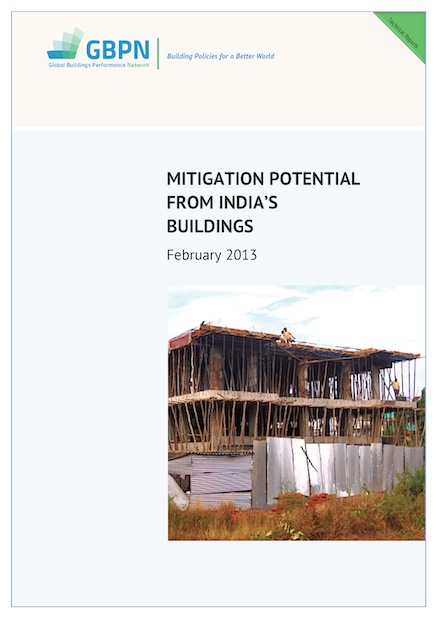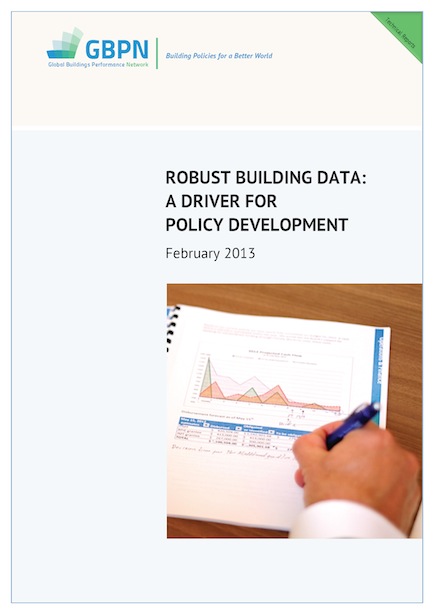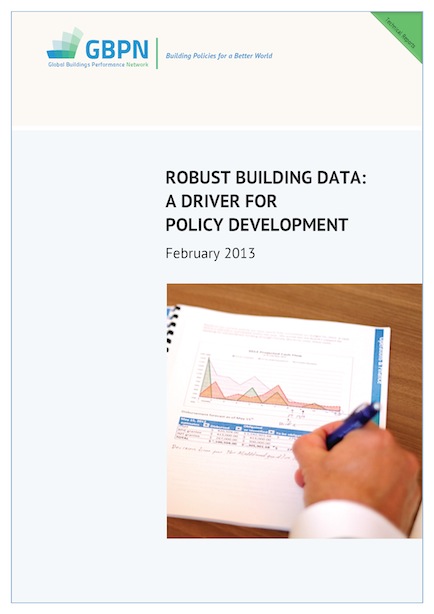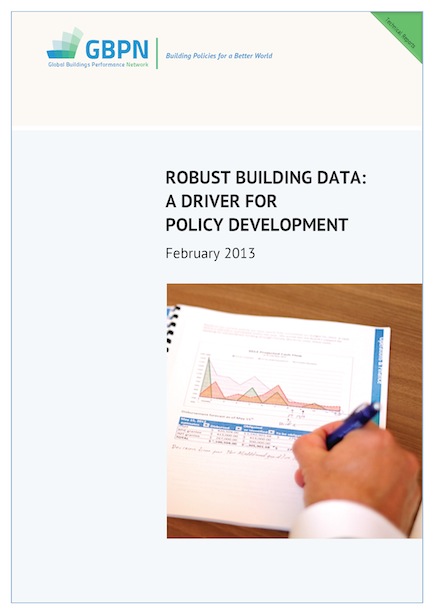印度建筑的减排潜力
 可靠证据表明,至2050年印度建筑领域会产生巨幅能源增长,基于此估测,本报告分析了印度目前建筑节能减排的政策框架及其节能潜力。
可靠证据表明,至2050年印度建筑领域会产生巨幅能源增长,基于此估测,本报告分析了印度目前建筑节能减排的政策框架及其节能潜力。
18 result(s) found
 可靠证据表明,至2050年印度建筑领域会产生巨幅能源增长,基于此估测,本报告分析了印度目前建筑节能减排的政策框架及其节能潜力。
可靠证据表明,至2050年印度建筑领域会产生巨幅能源增长,基于此估测,本报告分析了印度目前建筑节能减排的政策框架及其节能潜力。
 本报告就四个地区数据质量和数据的可利用性问题进行了分析,同时也提醒了我们需要完成多少工作才能建成一个强大而全面的建筑数据库,并提出了实现这个数据库的可行性建议。
本报告就四个地区数据质量和数据的可利用性问题进行了分析,同时也提醒了我们需要完成多少工作才能建成一个强大而全面的建筑数据库,并提出了实现这个数据库的可行性建议。
 本报告就四个地区数据质量和数据的可利用性问题进行了分析,同时也提醒了我们需要完成多少工作才能建成一个强大而全面的建筑数据库,并提出了实现这个数据库的可行性建议。
本报告就四个地区数据质量和数据的可利用性问题进行了分析,同时也提醒了我们需要完成多少工作才能建成一个强大而全面的建筑数据库,并提出了实现这个数据库的可行性建议。
 Data Annex
Data Annex
Discover where things stand regarding building energy data quality and availability in our four regions, this report reminds us of how far we have to go before a robust and comprehensive set of building data is in place and provides some recommendations of how we can get there.
 The Economist Intelligence Unit (EIU) report "Achieving scale in energy-efficient buildings in India: A view from the construction and real estate sectors" commissioned by the GBPN explains the challenges and opportunities of investing in energy efficiency in buildings in India.
The Economist Intelligence Unit (EIU) report "Achieving scale in energy-efficient buildings in India: A view from the construction and real estate sectors" commissioned by the GBPN explains the challenges and opportunities of investing in energy efficiency in buildings in India.
 A report from the Economist Intelligence Unit (EIU), commissioned by the GBPN finds that while India’s commercial building sector has blazed the energy-effiency trail in the building sector, achieving significant scale will depend on efficiency measures becoming standard practice in the commercial middle market, retrofit and, particularly, the residential building segment.
A report from the Economist Intelligence Unit (EIU), commissioned by the GBPN finds that while India’s commercial building sector has blazed the energy-effiency trail in the building sector, achieving significant scale will depend on efficiency measures becoming standard practice in the commercial middle market, retrofit and, particularly, the residential building segment.
 Executive Summary
Executive Summary
GBPN conducted a study on the factors affecting the use of ESCO models for the retrofit of existing buildings in China, identifying current barriers to the development of the Chinese ESCO market, while also researching best-practice examples of ESCOs globally and investigating the feasibility of introducing those examples to China.
It is now established that energy use in buildings is a significant source of global greenhouse gas emissions and that abatement by the building sector can provide significant social, economic and environmental benefits. This paper examines the application of socio-technical transition theory to the building sector with Australian energy policy as a case study. The relatively high level of local building construction offers significant opportunities for market transition with appropriate policy settings so this national case has international implications.
Building energy efficiency is an important strategy for reducing greenhouse gas emissions globally. In fact, 55 countries have included building energy efficiency in their Nationally Determined Contributions (NDCs) under the Paris Agreement. This research uses building energy code implementation in six cities across different continents as case studies to assess what it may take for countries to implement the ambitions of their energy efficiency goals.
This paper introduces the major state-level regulations and policies for improving energy efficiency in buildings. The purpose of the review is to discuss the challenges and issues in policy implementation and the latest trend in adopting innovative instruments. The implementation of customer efficiency programs increasingly incorporates non-price instruments to encourage participation and deep savings. States pay attention to not only code adoption and update but also compliance and evaluation.
This research combines two parallel and complementary work packages.The first examines the relationship between technical building energy performance improvements relating to electricity and gas end uses (e.g.
The contribution of buildings to climate change has become widely acknowledged. On 3 December 2015, the United Nations Environment Programme (UNEP) held the first ‘buildings day’ at COP 21 (the UN Climate Change Conference) devoted to the decarbonization of the building stock. There are several forms of negative contributions that buildings make to climate change, but high on the list are embodied and operational energy demands, which largely depend on fossil fuels and result in greenhouse gas emissions.
Under Article 7(1) of the Directive, France must make annual savings of 1.5 % of energy sales to end consumers compared to the average for 2010-12. To obtain the volume of energy sales, own generation of energy and the renewable share of renewable heat energy were subtracted from the non-climate corrected end energy consumption.
In-home displays, dynamic pricing, and automated devices aim to reduce residential electricity use—overall and during peak hours. We present a meta-analysis of 32 studies of the impacts of these interventions, conducted in the US or Canada. We find that methodological problems are common in the design of these studies, leading to artificially inflated results relative to what one would expect if the interventions were implemented in the general population.
The gap between actual carbon prices and those required to achieve ambitious climate change mitigation could be closed by enhancing the public acceptability of carbon pricing through appropriate use of the revenues raised. In this Perspective, we synthesize findings regarding the optimal use of carbon revenues from both traditional economic analyses and studies in behavioural and political science that are focused on public acceptability.